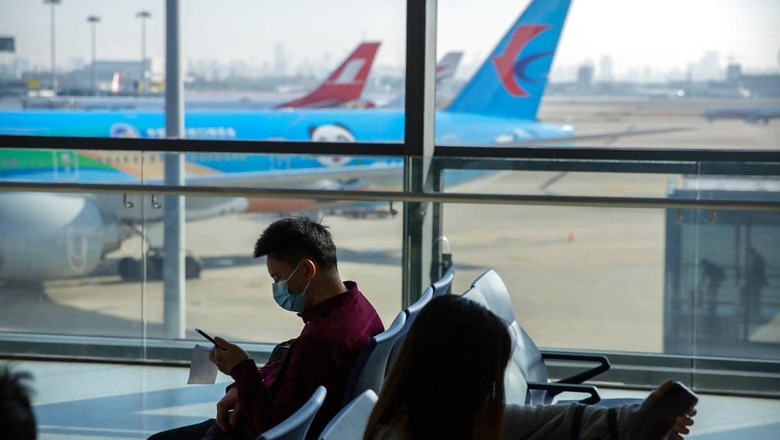
views
As the COVID-19 pandemic rages on, aviation continues to be disproportionally impacted. In light of the second wave that has hit India, the list of countries suspending travel continues to grow. At the time of writing this, flights from India to the UK, UAE, Canada, Kuwait, Hong Kong, Germany, Oman and Bangladesh stand suspended. All this time, air travel is continuously witnessing complex and asymmetric rules–rules that speak to each country, to politics, to virus containment strategies and to public opinion. Despite efforts, these rules are here to stay. They will alter the way we travel and how we think and feel about international travel.
To understand how travel will change once the pandemic is contained in a deliberate and decisive manner, one has to examine the arena of aeropolitics. Aeropolitics deals with the politics behind aviation. The two, namely aviation and politics, have always been intertwined given the nature of the industry and that most airlines and airports historically were owned and operated by respective governments. Furthermore, aviation has a tendency to generate headlines and in many ways influence the narrative. Throw in the impact on jobs, economic growth and taxes. And, if that wasn’t enough, the pandemic now has spread globally where air travel has undeniably played a role. Intense involvement by policymakers and politicians is a given.
The current challenge of aeropolitics deals with market access. Until now, market access focused on immigration controls—mostly via visas. For the most part, market access did not have the element of health security linked to granting of visas. But with COVID-19, that may have changed forever.
The current politics behind market access comes from the virus containment and elimination strategies adopted by each country. Every country views air travel differently; views the source country—from where passengers are arriving—differently; and values passengers differently. Standardizing this is all but impossible. What countries have come up with are “vaccine passports” and “bubble arrangement.”
Vaccine passports are documents that confirm that one has been vaccinated against a disease, while bubble arrangements are agreements between two countries aimed at restarting commercial air-passenger services when regular international flights are suspended. Both vaccine passports and bubble arrangements in the current scenario help address the issue of health risk and transmission risk between two countries. For the time being, these are perhaps the only short-term solutions that could be arrived at to restore passenger flows. But in the long-term, these have consequences that will impact the very nature of air travel. The days of booking a flight with the sole requirement of a visa may be a thing of the past, and one can no longer take for granted that travelling to any two countries will be alike. This will have other consequences including, where we travel, how we travel and how we view international travel.
In the case of India, over the last two decades, the market has grown exponentially. This, driven by airlines in Europe looking at saturation scenarios, a distinct shift of demand to Asia and above all the Middle East, and their sizeable airlines and airports. For international airlines to thrive, market access became a key criterion. And for market access, significant engagement and lobbying were undertaken. Unlike countries such as Canada and Germany that had protectionist policies, India completely opened up the market without thought to consequent impacts. Fast forward to the present day and the demand shift to Asia remains and, with China market access a distant dream, airlines across the world are searching for that elusive passenger. And for better or worse, the India market remains a rich source market—due to its diaspora, due to its demographics and due to docility.
Yet, India can no longer stand by and accept measures that are unilaterally imposed. Tough negotiation is needed, especially because countries are mandating health protocols that in many cases are going beyond the purview of aviation. Bubbles, bi-laterals and aeropolitics all have to be navigated with a view that minimizes risk to both countries with contractual measures that cover all eventualities. That, as of now, is simply not the case.
Going forward, vaccine passports and bubble arrangements are here to stay in the near future. As a result, air travel as we know would cease to exist. Much like passengers accepted and adjusted to the security measures after the horrific 9/11 attacks in the US, it is likely passengers will adapt to these new measures. But what is often missed is that how we feel about travel may also change. Travel that has been about connection, about commerce and about consideration may devolve into a myriad web of procedures, policies and protocols.
Satyendra Pandey is the Managing Partner at the aviation services firm AT-TV. Views expressed are personal.
Read all the Latest News, Breaking News and Coronavirus News here. Follow us on Facebook, Twitter and Telegram.




















Comments
0 comment